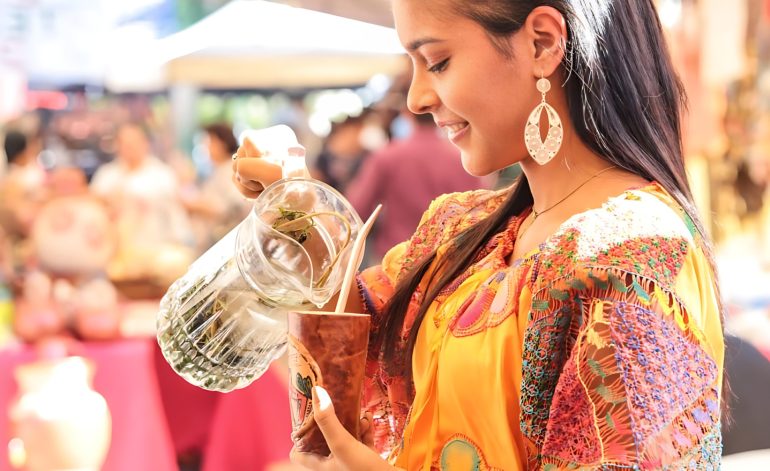Deep-rooted beliefs still play a significant role across the country today, influencing life in both rural and urban areas. Paraguay’s superstitions guide how people interpret signs from nature and everyday moments to predict luck, avoid bad omens, or explain sudden events. Rooted in centuries-old customs and still practised at family gatherings, they preserve a unique aspect of the nation’s identity.
The quiet magic of daily life
On a warm summer afternoon in Asunción, the family sheltered from the heat beneath the veranda. The steady swish of a broom across the tiled floor was interrupted when its bristles swept over an uncle’s feet. Laughter erupted, followed by cheerful warnings: “Mind you do not sweep away his luck.” The moment passed quickly, but the saying lingered, a reminder that even the lightest gestures can carry meaning.
Far from being mere curiosities, these traditions remain woven into the country’s cultural fabric, visible in ordinary gestures and seasonal customs. They influence when people choose to travel or marry, how they interpret changes in weather, and the way they react to sudden events. Drawing from indigenous heritage, colonial influences, and rural wisdom, they link past and present in a living blend of belief and shared legacy.
Money signs
In folk wisdom, itchy palms can predict financial changes. If the left hand itches, cash is expected to arrive, but if it is the right hand, an unforeseen expense is approaching. Stepping on animal droppings is seen as a lucky accident for the wallet, while hitting your elbow without complaint signals the arrival of funds or a gift.
Even the tereré ritual, the national drink of Paraguay, carries a wealth-related omen. If the guampa, the traditional cup for drinking tereré, is passed to the wrong person, not the one serving, the receiver is thought to soon come into some money. This superstition adds a playful tension to the custom, making it more than a simple act of hospitality.
Announcing events
Beyond matters of money, many of Paraguay’s superstitions revolve around anticipating life’s milestones. In local folklore, animals often act as messengers of upcoming events. A snake crossing the path of a pregnant woman foretells the birth of a boy, while the call of the pitogüé bird is linked to news of pregnancy. Even hens fighting can be read as a sign that a woman will soon visit.
Objects and daily occurrences also hold symbolic meaning in cultural lore. A dropped spoon is said to invite a female guest, while a falling knife points to the arrival of a man. Dreams or sightings of a white horse are seen as indicators of change, and the fall of scissors is believed to signal a turning point.
Signs and bringers of luck
In the popular collective imagination, luck often arrives announced by nature or the smallest twists of everyday life. A hummingbird hovering before a house or flying inside is taken as something positive, while yellow wasps mean news from afar.
Gestures and unexpected events are also connected to favourable outcomes, from touching the belly of a pregnant woman (said to pass on her prosperity) to picking up a pin as a token for an auspicious day. Accidentally wearing clothes inside out is thought of as a sign that new garments are on the way, while a dog urinating at a doorstep is interpreted as a sign of good fortune, proof that luck can turn up in the most unlikely moments.
Natural signs in Paraguay’s superstitions
The skies and weather also hold meaning in Paraguayan superstition. According to long-held custom, some weather and celestial events are explained through folklore. Sunshine and rain together mean the devil is marrying a spinster or a witch. A donkey’s bray heralds rain, while gazing at the moon too long is viewed as misfortune.
Some of these practices include actions intended to influence natural forces. Planting open scissors in the ground is regarded as a means to halt rainfall or ward off bad luck, blending symbolic meaning with a practical gesture rooted in rural life.
Portents and protective actions
Alongside efforts to influence nature, many rituals focus on avoiding misfortune altogether. In local practice, certain days and actions are deliberately avoided, such as marrying or starting a journey on a Tuesday, or travelling with a priest. Killing a barn owl is understood as bringing lasting harm, while weddings are shadowed by omens like dropped rings or burning veils.
To ward off adversity, some rely on simple gestures: touching wood when speaking of illness or other sensitive subjects, or mounting a cattle skull or a pair of horns on a pole to shield the fields. These stark emblems stand against the horizon like silent guardians, believed to keep harm at bay and ensure a prosperous harvest.
Paraguay’s superstitions endure thanks to the country’s strong oral tradition, passed from one generation to the next. Whether whispered at family gatherings or mentioned in casual conversation, they remain part of the nation’s living heritage.
This same cultural richness is also expressed at Paraguay’s culinary traditions, from breakfast to dinner. Just as superstitions connect people to the past, Paraguayan dishes carry stories of family, resilience, and celebration, offering a taste of heritage in every bite.


